Want to be seen here?
Connect your company to the marketplace for free.
Time for a display campaign? Ocast has gathered thousands of solutions in one place so you can get started quickly. Fill in the form and start receiving offers for campaign proposals.
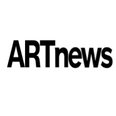
Founded in 1902, ARTnews is the world’s oldest and most widely circulated art magazine published six times per year, with each issue covering a unique and specialized theme. Its website, ARTnews.com, ...
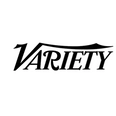
Variety is the most authoritative and trusted source of entertainment business news, recognized and respected throughout the world. Since 1905, influential producers, executives and talent in entertai...
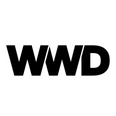
WWD is the daily fashion media of record and the exclusive news authority in fashion, retail and beauty. As the global go-to for breaking news, trend reporting, iconic imagery and brand exclusives, WW...

The Hollywood Reporter (THR) is a flagship entertainment media brand, offering in-depth reporting, analysis, unparalleled access, world-class photography and video, and feature exclusives in its award...
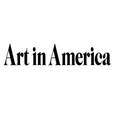
Since 1913, Art in America has published groundbreaking critical insights about contemporary art and culture. Each monthly issue features exhibition reviews, interviews with leading artists, and in-de...
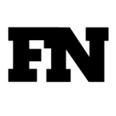
FN is the ultimate destination for industry insiders and shoe lovers alike. From power players to style stars, FN draws on seventy years of history to offer a feet first look at what’s new and what’s...
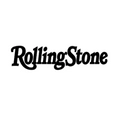
Five decades since its founding, Rolling Stone today has evolved into a multi-platform content brand with unrivalled access and authority, reaching a global audience of over 60 million people per mont...
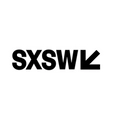
Founded in 1987 in Austin, Texas, SXSW is best known for its conference and festivals that celebrate the convergence of the interactive, film, and music industries. The event, an essential destination...
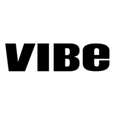
Founded in 1992 by iconic music and film producer Quincy Jones as a print publication, VIBE is a leading entertainment and lifestyle brand delivering content across multiple media platforms to a diver...
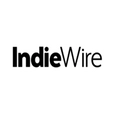
For over 25 years, IndieWire has been covering the business and art of entertainment. With the respect of film and TV creators, executives, and passionate fans alike, IndieWire is known for being ahea...
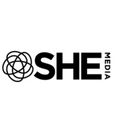
As a top 5 lifestyle media company reaching 88 million monthly visitors, SHE Media focuses on the power of content and community to move our culture forward. We believe that media companies can and s...
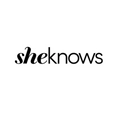
SheKnows is the #momlife expert. We’re an inclusive community for parents, and we recognize the challenges that living a full, vibrant, busy mom-life presents while also acknowledging the good stuff....
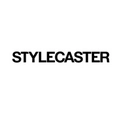
STYLECASTER’s mantra is ‘style to the people’— and our mission is to be an accessible, inclusive, ahead-of-the-trend destination for the millennial woman who wants to live with style and substance. Ou...
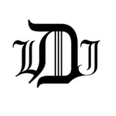
LDJ Productions is one of the world’s finest experiential production and creative agencies committed to amplifying the guest experience while creating brand loyalty and leaving lasting impressions. Wi...
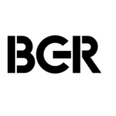
BGR, or Boy Genius Report, is the number one mobile gadget site in the world and host to a highly engaged audience that interacts with its content on a daily basis. BGR regularly breaks news first and...

Deadline Hollywood (Deadline.com) first began in March 2006 as Deadline Hollywood Daily, the 24/7 Internet version of Nikki Finke’s long-running LA Weekly “Deadline Hollywood” print column. In 2009, N...
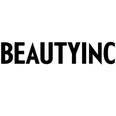
Beauty Inc is the insider’s guide to the global Beauty community. Offering six franchise printed issues per year, a weekly news-based digital publication, and expanded coverage on wwd.com, Beauty Inc ...
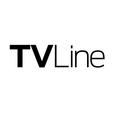
Since its launch in January 2011, TVLine has had a singular, unwavering focus: to deliver a concentrated stream of breaking TV news, original previews and insightful recaps/reviews.After all, let’s fa...
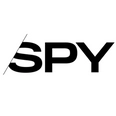
Spy.com is a leading buyer’s guide for Millennials with discerning tastes in must-have gadgets, gear, style, media, and experiences. Spy.com’s trend-savvy editorial staff uncovers and curates unique p...
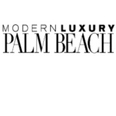
Modern Luxury offers local knowledge and regional character dovetailed with a national reach. Our unrivaled local intelligence, interactive digital brand extensions and hightouch events make us the mo...
Display advertising, often referred to as banner advertising, involves visual ads placed on various websites, in contrast to text-based search ads that appear in search results on platforms like Google.
While search ads are focused on direct response, display ads aim at building brand awareness through engaging visual content like images or animations. Display advertising also enables retargeting, where ads are redirected to users who have previously visited your website, helping to keep the brand fresh in mind.
With opportunities to measure campaign performance and customize design and target audience, display advertising offers an attractive strategy for brands looking to enhance their online presence and effectively engage their target audiences.
The most effective formats and sizes for display ads vary depending on the platform and target audience, but here are some popular options:
Leaderboard (728x90 px): Positioned at the top of the page, this ad size captures visitors' attention right away.
Medium Rectangle (300x250 px): This size is flexible and can be placed in sidebars or embedded within content.
Large Rectangle (336x280 px): A larger variant of the Medium Rectangle that offers more visible space.
Wide Skyscraper (160x600 px): Often used in sidebars, offering a long, vertical ad space.
Mobile Leaderboard (320x50 px): Optimized for mobile devices and often placed at the top or bottom of the screen.
Consider adhering to industry standards and adapting ad format and size to the specific platform and your target audience. However, the emphasis should be on having well-thought-out content that engages and is relevant to your target audience with clear "Call to Actions" (CTA) to encourage clicks and conversions.
Measuring the effectiveness of your display advertising campaigns is crucial for evaluating the results of your campaign and for fine-tuning future marketing strategies. A first step could be to look over the Click-Through Rate (CTR), which represents the number of clicks your ad receives per view, providing an indication of the ad's engagement level. It is also important to track the conversion rate, which shows how many clicks are converted into desired actions such as sales or leads. Cost Per Conversion is another key indicator that helps you understand the cost-effectiveness of your campaign.
It may also be good to look at the impression rate, that is, how many times the ad has actually reached out and been displayed for brand-building purposes.
One of the major advantages of this type of advertising is its ability for audience targeting, where ads can be directed based on demographics, behavior, and retargeting, enabling a more personalized advertising experience. Moreover, with the use of various analytical tools, it becomes easy to track and measure the campaign's effectiveness by observing data on clicks, conversions, and views, which provides valuable insights.
However, display advertising also has its downsides. Ad blocking is one of the major challenges, where users can choose to block display ads, which in turn reduces the reach and effectiveness of your campaign. Ad fatigue is another downside, where ads that are shown too often can become irritating for the users, leading to decreased engagement and negative brand associations. Despite the ability for audience targeting, audience dilution can be a challenge if precise targeting is not used, which potentially leads to wasted marketing expenses. Additionally, the cost of display advertising can become significant, especially if the campaign is not well optimized to achieve desired results.
The cost of display advertising can vary based on several factors such as website, ad format, and target audience. Besides that, there are different pricing structures one can base on to adjust the cost according to the goal at hand. Below we list different pricing options for display advertising.
CPM (Cost Per Mille or Cost Per Thousand Impressions):
The price for 1000 views of your ad.
Often used for campaigns aimed at increasing brand awareness.
CPC (Cost Per Click):
The price you pay for each click your ad receives.
Used when the goal is to drive traffic to a website or increase interaction.
CPA (Cost Per Acquisition or Cost Per Action):
The price for each specific action or execution, such as a purchase or lead generation, that arises via your ad.
Used when the goal is conversions rather than just views or clicks.
CPL (Cost Per Lead):
The price for each lead generated through your ad.
Used in B2B marketing or for products/services with longer sales cycles.
CPV (Cost Per View):
The price for each viewing of a video ad.
Often used for video-based advertising campaigns.
Each pricing structure suits different goals and campaign types, and choosing the right pricing structure can help maximize the ROI for your display campaign.
Connect your company to the marketplace for free.
No commitments.